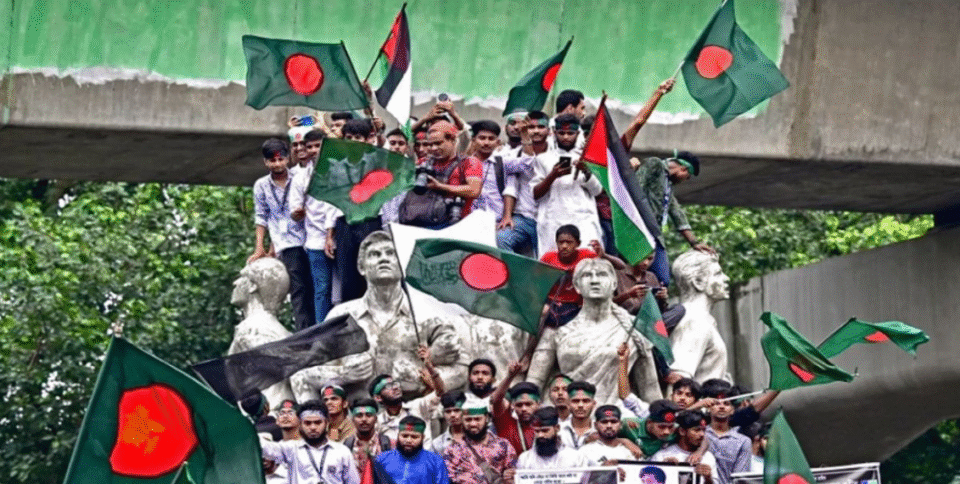Dhaka [Bangladesh], August 5: Tens of thousands gathered across Bangladesh on Tuesday to mark the first anniversary of the 2024 July Uprising that ousted Prime Minister Sheikh Hasina’s government. The main event unfolded in Dhaka’s Manik Mia Avenue, near the National Parliament House, under tight security.
The day has been declared a national holiday by the interim government, with large-scale logistical arrangements made to bring in participants from across the country. Eight pairs of trains were reportedly hired to ferry crowds into the capital, while garment factories and some banks were instructed to release workers and staff to attend the state-backed celebrations.
Live performances by leading musical bands and cultural groups kicked off the day-long festivities. The highlight of the event is expected later in the evening, when Chief Adviser Muhammad Yunus will formally unveil the ‘July Declaration’, a political roadmap said to outline 26 points focused on political reform, constitutional changes, and governance.
Yunus, the Nobel Laureate who assumed leadership after last year’s student-led uprising, is also scheduled to address the nation via radio and television broadcasts.
In a message released earlier today, Yunus said:
“It was on this very day, one year ago, that the July Uprising reached its triumph, liberating our beloved nation from the grip of long-standing fascist rule.”
He reaffirmed the interim government’s promise to hold free, fair, and transparent elections, framing it as part of a sustainable political solution.
Various political parties marked the day with their own events. Notably, Jamaat-e-Islami, Bangladesh’s largest Islamic political party—previously banned for opposing the country’s 1971 independence—held a march with its election symbol, the Dari Palla (measurement scale).
Criticism from Human Rights Watch
Despite the public enthusiasm, the interim government has faced pointed criticism from Human Rights Watch (HRW), which accused it of failing to deliver on its human rights commitments one year after the mass uprising.
“The hope of the thousands who braved lethal violence a year ago to build a rights-respecting democracy remains unfulfilled,” said Meenakshi Ganguly, deputy Asia director at HRW.
She added that the current administration appears stuck between an unreformed security sector, violent hardliners, and political factions more interested in punishing former regime loyalists than ensuring public safety and rights.
Security and Political Context
Security forces have set up checkpoints and are conducting street searches as a precaution amid ongoing political tensions.
Meanwhile, the opposition Awami League, still officially banned from political activity, is observing August as a month of mourning. The month marks the assassination of Sheikh Mujibur Rahman, Bangladesh’s independence leader and father of Sheikh Hasina, who was killed along with most of his family on August 15, 1975.
Hasina was ousted in what came to be known as the July Uprising or July Revolution in August 2024. She fled to India, and an interim government led by Muhammad Yunus took over, promising democratic restoration.

